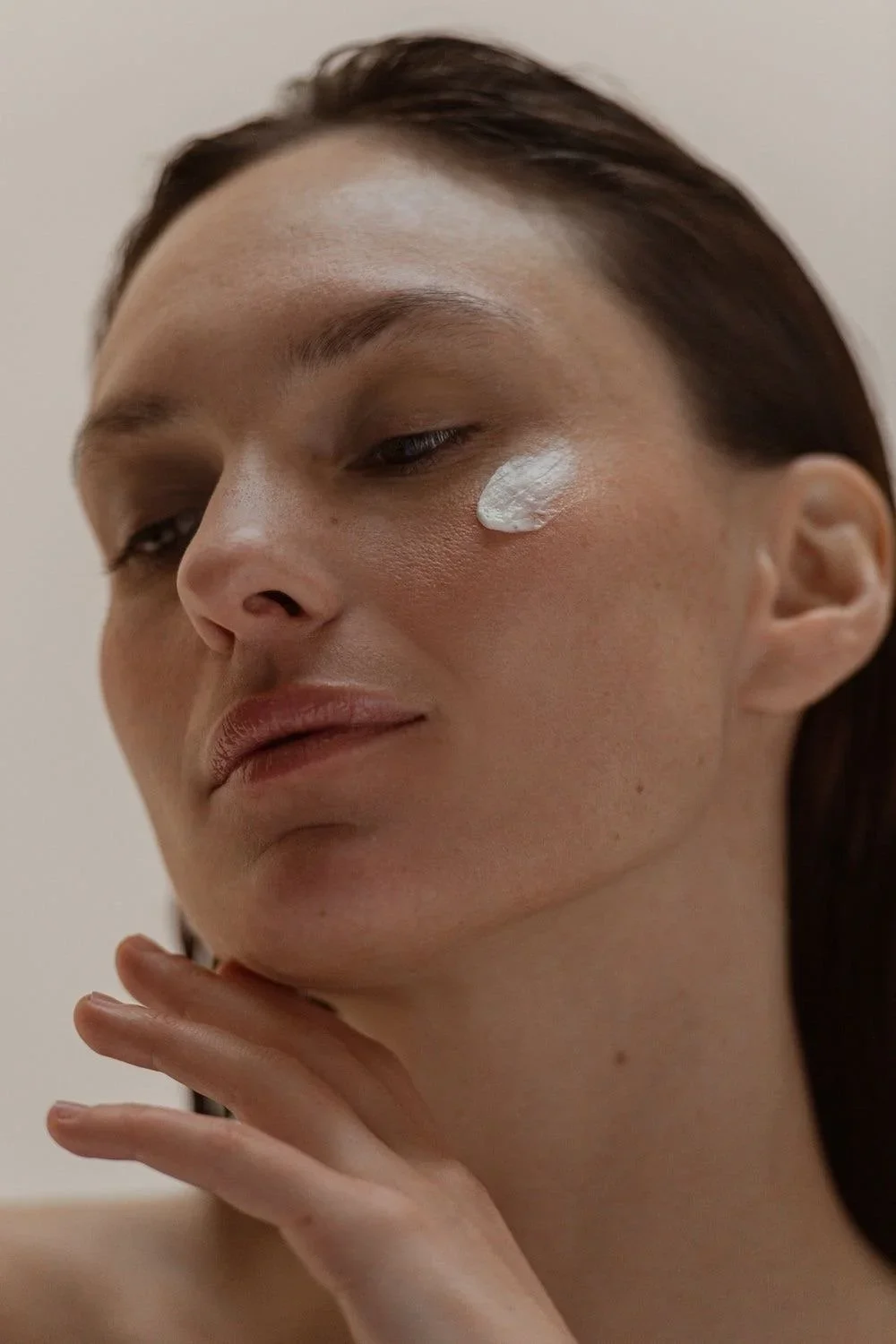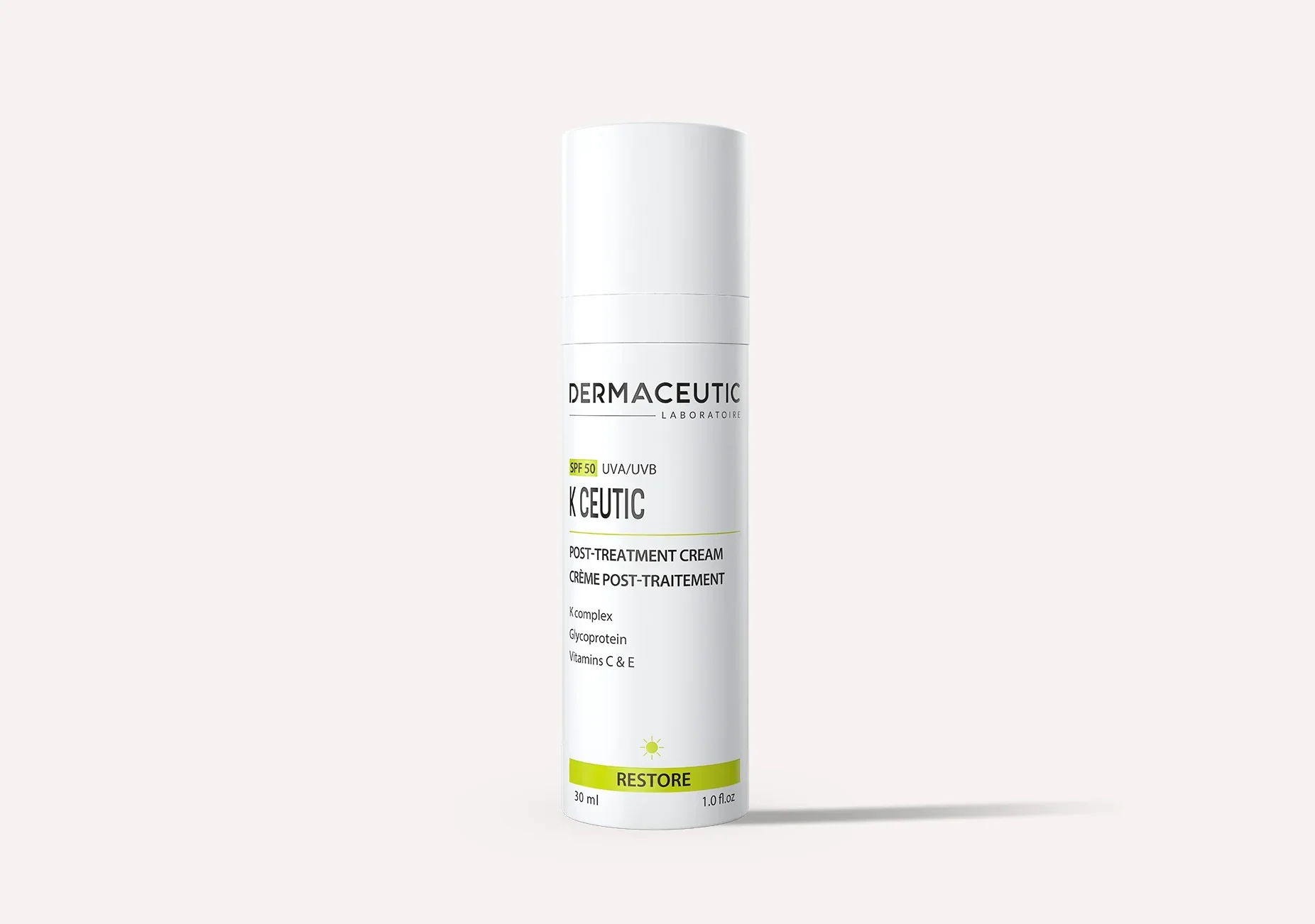Sunscreen, Recalls & Sensitive Skin: What You Really Need to Know A Balmain skin therapist’s guide to safer sun care in 2025
Why Sunscreen Matters More Than Ever in Australia
If you live in Australia, SPF isn’t just a skincare step.
It’s a non-negotiable part of keeping your skin healthy. But with recent sunscreen recalls making headlines, it’s natural to wonder: Is my SPF actually protecting me?
As a Balmain-based skin clinic that sees the effects of sun exposure daily, we want to help you stay informed and safe. So we teamed up with our brilliant friends Saul and Georgia from Skinterest, leading formulation experts in the skincare industry, to unpack what’s really going on and how you can protect your skin with confidence.
Meet Our Guest Experts: Saul & Georgia from Skinterest
Georgia and Saul from Skinterest standing together and smiling.
We’re lucky to call Saul and Georgia not just colleagues, but friends of the Lady Luxe family.
Saul is a chartered cosmetic scientist. Georgia is a business and marketing strategist with a serious passion for skincare. Together, they co-founded Skinterest, an independent formulation lab helping brands create top-tier skincare, haircare, and sunscreens from idea to shelf.
SPF Recalls in 2025: What Really Happened?
Ultra Violette & The Lab Testing Debate
Only one sunscreen has been formally recalled so far: Ultra Violette Lean Screen SPF 50+.
Why? Independent testing from CHOICE found the product performed closer to SPF4. Ultra Violette had their own third-party test showing SPF50+, which raised major concerns about inconsistencies in testing labs.
In response, Ultra Violette voluntarily recalled the product. Other brands using the same manufacturer (private-labelled formulas) quietly pulled similar products from their shelvesthough they haven’t been officially recalled.
Read more from ABC News: More sunscreens pulled from shelves | Is my sunscreen safe?
It’s Not About Bad Brands. It’s About Unstable Formulas
As Saul and Georgia explain, mineral sunscreens (like zinc oxide-based ones) are incredibly hard to formulate correctly:
Zinc clumps easily, leading to uneven coverage
Particle dispersion must be extremely precise
Shelf stability is more fragile than chemical SPFs
So even though the brands followed the rules, the formulas themselves may break down over time, especially after leaving the lab.
Mineral vs Chemical Sunscreen: What You Should Know
Why Mineral Sunscreens Are Harder to Get Right
Chemical sunscreens (like avobenzone or octocrylene) use clear liquid filters that absorb UV. Mineral sunscreens use physical blockers like zinc oxide, which reflect UV rays. Sounds better, right?
Yes, but only if formulated correctly. The problem is:
High-SPF mineral formulas require lots of zinc
It’s difficult to make them feel good on the skin
They tend to leave a white cast or tint mismatch
They’re more unstable during shipping and shelf life
How SPF Is Tested (and Why That’s a Problem)
SPF is tested on human volunteers under UV lamps
It’s based on time to redness with vs. without sunscreen
The method is prone to human error
Labs aren’t audited regularly
Retesting isn’t mandatory unless the formula changes
Saul even co-authored a 2013 scientific paper about SPF variability, this issue isn’t new, but it’s finally in the spotlight.
Jess’ Top Picks for Face & Chest
In-Salon Favourite: K Ceutic Post-Treatment Cream
Dermaceutic K Ceutic SPF 50 post-treatment cream in Lady Luxe’s SPF blog.
Can be purchased in the salon
Restore and protect your skin with K Ceutic. This powerful formula delivers essential nutrients and a very high SPF 50, offering UVA/UVB protection. It’s designed to repair, nourish, protect, and soothe, especially after professional treatments.
Restores and protects with SPF 50
Repairs and nourishes fragile skin
Soothes and reduces redness
Hypoallergenic & fragrance-free
Suitable for all skin types, including post-aesthetic treatments
Key Ingredients
K Complex – A combination of anti-inflammatory agents that soothe the skin
Glycoprotein – Regenerative active that stimulates collagen and elastin
Vitamins C & E – Work together to prevent photoageing
UV Filters – A mix of mineral and organic filters for broad-spectrum UVA/UVB protection
This product is ideal for anyone recovering from peels, laser, or needling, or those with ongoing redness and barrier sensitivity. It's part SPF, part treatment, and 100% skin therapist-approved.
Ask us about it in your next consultation or book online.. It’s a protective treatment veil fortified with vitamins and nutrients to restore the skin’s barrier.
Glycoproteins boost collagen production
K Complex soothes inflammation
Suitable for even the most sensitive skin
Ask us about it in your next consultation or book online.
Tinted Zinc Option: Invisible Zinc Daywear SPF 30
Invisible Zinc Tinted Daywear SPF 30 featured in Lady Luxe’s SPF blog.
Unlike chemical sunscreens, INVISIBLE ZINC® uses naturally sourced zinc oxide to form a reflective shield against UVA and UVB rays.
No chemical filters
Broad-spectrum protection
Suitable for sensitive skin
Choose Your SPF by Skin Type
For Sensitive Skin
Choose mineral (zinc or titanium dioxide) or hybrid formulas
Look for fragrance-free, hypoallergenic, non-sensitising
Avoid oxybenzone, essential oils, MIT
For Dry Skin
Dewy-finish SPFs with humectants (glycerin, HA)
Emollients like shea butter help lock in moisture
Use moisturiser before SPF if needed
For Oily Skin
Matte finish or oil-absorbing ingredients (silica, kaolin)
Look for non-comedogenic and lightweight formulas
Niacinamide is a bonus
For Acne-Prone Skin
Go for oil-free, non-greasy, matte formulas
Avoid lanolin, isopropyl myristate, and cocoa butter
Under Makeup
Match primer/SPF to your foundation type (silicone with silicone)
Avoid overly powdery or wet textures
Let each layer dry fully to avoid pilling
Final Thoughts from Jess
Sunscreen is essential but it’s not your only line of defence.
Check the UV index before going out
Stay in the shade during peak sun hours
Wear a wide-brim hat, sunglasses, and protective clothing
And in Australia, regular skin checks aren’t optional. They’re life-saving. That includes kids, too.
If you're unsure what sunscreen is best for you, get in touch or book a 1:1 consult with us.
Curious about how SPF fits into your broader skincare routine? You might also like our blog on 10 Skincare Mistakes You’re Probably Making — especially #2.



